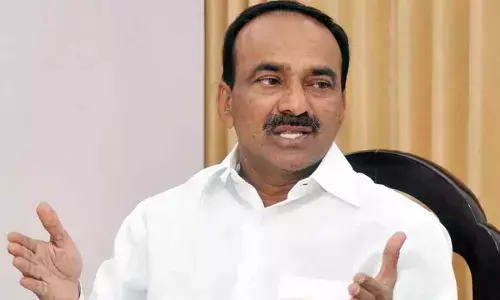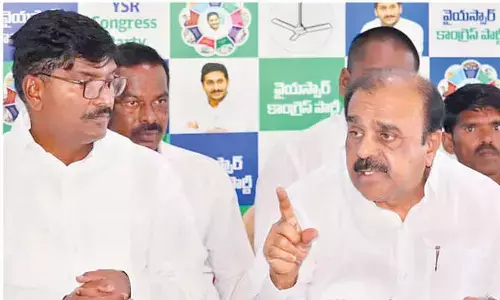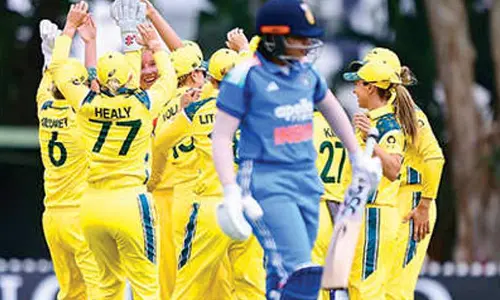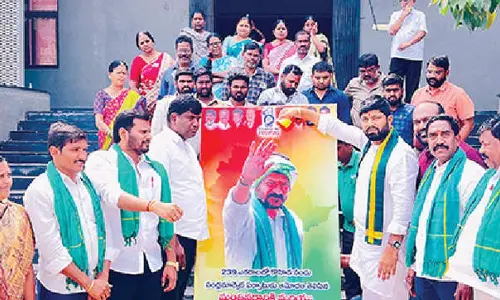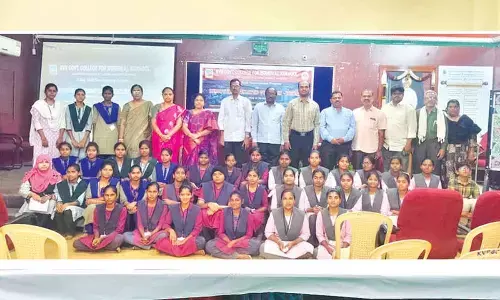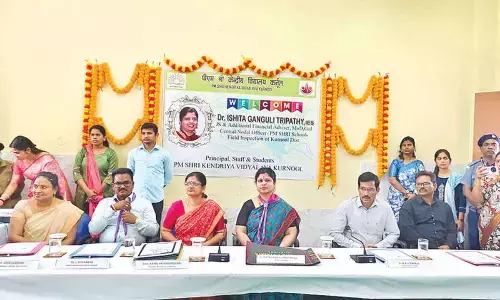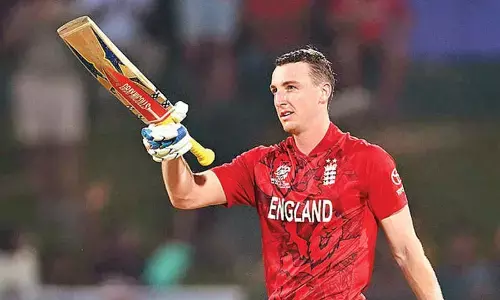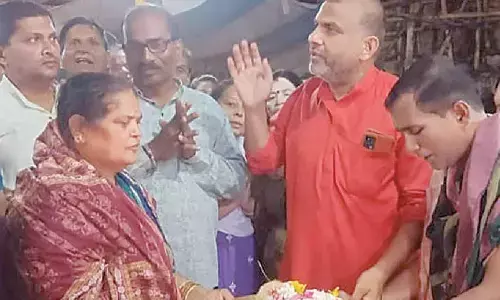Decoding Pain: Conversation with Dr. Vijay Bhaskar B, Founder, Indo-British Advanced Pain Clinic
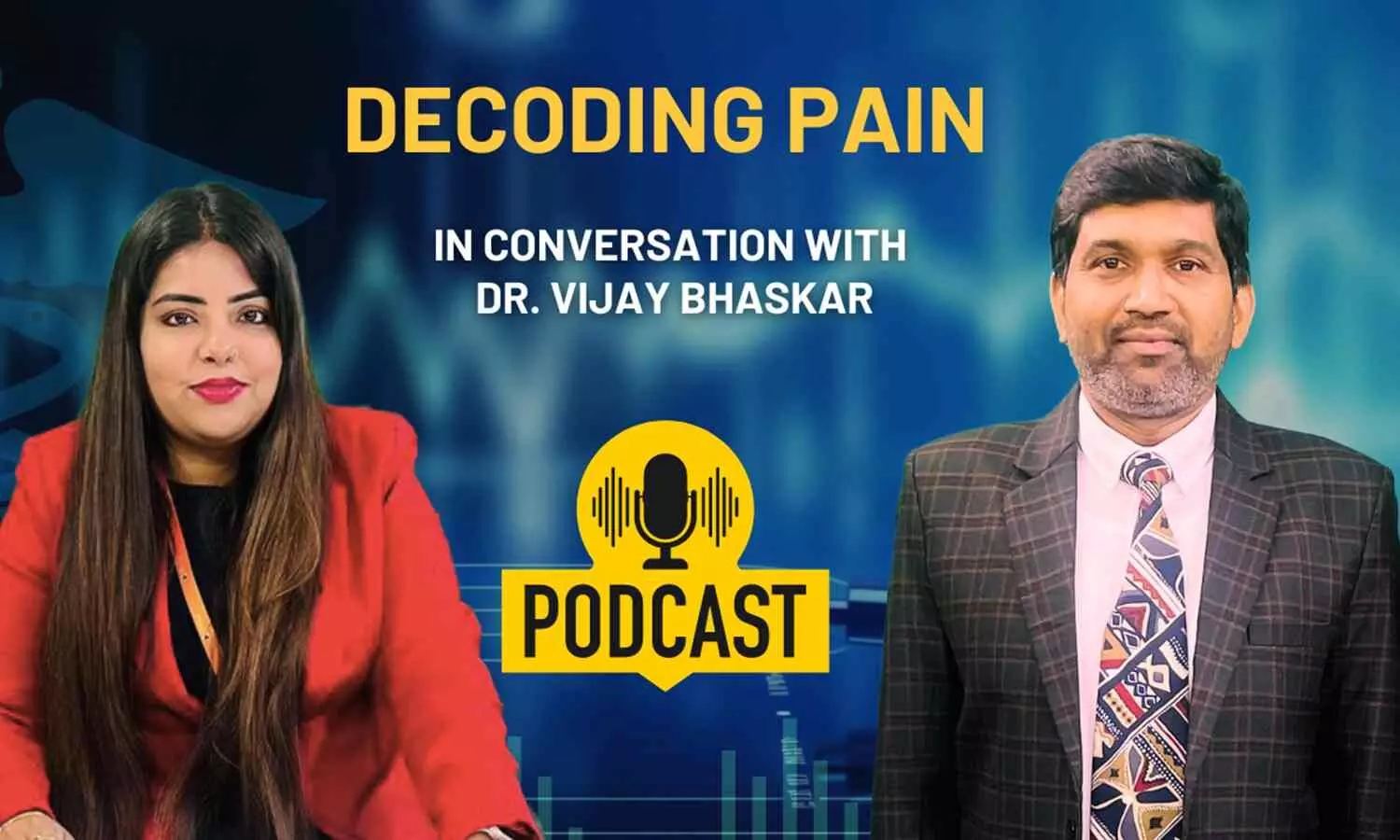
Decoding Pain: Conversation with Dr. Vijay Bhaskar B, Founder, Indo-British Advanced Pain Clinic
Discover his insights on pain management, groundbreaking research, and the importance of consulting pain specialists.
Dr. Vijay Bhaskar Bandikatla, MBBS, DA, MBA, FRCA, FFPMRCA, CCT, and Fellow in Neuromodulation, is a luminary in pain medicine and the top pain physician in Hyderabad with 20 years of immense experience.
His remarkable journey in medical innovation has earned him widespread recognition and accolades from esteemed national and international organizations. His unparalleled expertise in pain medicine, neuromodulation, and groundbreaking research in spinal cord stimulation have not only transformed the landscape of healthcare but also inspired peers and patients alike.
In honour of Doctor's Day on 1st July, we spoke exclusively to Dr. Vijay Bhaskar Bandikatla to learn about his inspiring journey.
podcast link: https://youtu.be/WO3tsJnGw-E?si=NNJWC1LCE3AzDnjs
1. While we know that you are a renowned pain physician, can you let us know about your background and how you became interested in pain management?
Pain is a very interesting specialty; unlike others that are organ-specific, pain is symptom-specific. This field has not been given the importance it deserves. Everyone expects to be relieved of pain once they step into a hospital, which is not the case. In the wake of many types of pain, such as back pain, knee pain, shoulder pain, cardiac pain, sports pain, knee pain, and many more, doctors must delve deeper into the case to get a thorough understanding and pronounce the correct range of treatment. In anticipation of faster treatment and patients’ anxiety regarding their condition, the symptoms are neglected, the root cause of the pain’s inception. So, there is a gap in the management of pain as doctors are not trained in treating pain after a certain degree. There is a huge void in the management of pain in complex situations- that's what specialised pain physicians like me are striving to address. Various modalities are involved in the treatment of pain: different types of medicines, therapies, interventions, and surgeries, a few simple and a few complex in varying degrees. This is the crucial junction where the pain specialists intervene- helping the patient make the right decision that’s best for them!
2. People in India, especially the ladies, according to multiple surveys, live with chronic pain for years, leading to their condition worsening. Why is it advisable to consult a pain specialist immediately in the wake of pain?
When it comes to chronic and complex pain, there is no such thing as no pain, no gain. Additionally, there are no medals awarded for incessant suffering, correct? Rather, we would descend into a downward spiral in our lives. We begin to assume responsibility for the situation, engaging in constant reflection and anxiety regarding the circumstances that led to it. A multifaceted decline begins to manifest, affecting us in a variety of ways, including physically, emotionally, financially, spiritually, socially, and psychologically. This occurs in both the home and the workplace. The subsequent phase involves the disruption of the normalcy of life. Pain is never a sin that is committed; therefore, it is crucial to consult a pain specialist to identify the underlying cause of the pain and receive treatment in order to navigate life with ease and energy for overall well-being.
3. Many unnecessary surgeries are being carried out for the complaint of pain, and there is no respite for the patients even after surgery. What is your take on this?
About 98% of backpains don’t require surgery, and many patients are pressured into surgery due to their desperation and the doctors not being skilled enough to handle the pain condition without operating. Getting an X-ray/MRI done without consultation, or just procuring medicines from a medical shop, or visiting a chiropractor or a physiotherapist doesn’t help with pain in the long run. For instance, if we take the example of back surgery and knee replacement, chipping off the bones and fixing them with screws and pins is destroying the mobility of the spine and the knee, which is disastrous. Only specific conditions like muscle weakness calls out for surgery, and we advise patients not to opt for surgery by educating them as all surgeries come with morbidity. Imparting and instilling confidence in the patient that their life will be absolutely normal even without surgery is what a pain specialist should aim for in his/her career.
4. How would you describe the current state of pain management practices in India compared to global standards?
India has a huge resource pool in terms of talent and manpower. However, the training is inadequate in terms of the number of trainers and courses available to instruct junior-level physicians in pain medicine. The vacuum is to be filled by accumulating sufficient resources throughout the duration. Through workshops and conferences, we are providing physicians with certifications in regenerative therapies and non-surgical procedures. I am prepared to conduct pain medicine training programs, provided that they are approved by the state government, as I possess the requisite skills and expertise. I am attempting to introduce cutting-edge machinery and technologies to India to advance this niche field by collaborating with experts from other countries.
5. Do you deal with patients from rural areas who are reluctant to understand the latest technology and undergo avant-garde procedures?
When I returned to India, my biggest concern was how to convince patients that surgery is not the sole solution to any form of pain. I am providing the patients with a novel treatment protocol for pain management. We are educating patients on the importance of avoiding surgery as a solution to pain and its repercussions by conducting extensive outreach in the media, conferences, courses, and camps. We have significant word-of-mouth from rural patients, who refer us to their friends and family members for pain relief without the need for an operation. To date, we have successfully performed approximately 40,000 procedures, which has garnered widespread recognition and interest. Society has begun to recognise pain as a critical specialty, and physicians are expressing interest in pursuing pain medicine. India must take additional measures to increase awareness of pain medicine, and the government must advocate for reimbursements and insurance coverage for patients who are unable to afford chronic pain treatments.
6. For our readers who may be experiencing chronic pain, what steps can they take to find a qualified pain management specialist and advocate for their own health?
We prioritise affordability by utilising existing technology, improving training, and optimising resource utilisation. We provide low-cost care to patients. The NHS in the United Kingdom operates on a comparable principle, and in order to alleviate the burden of preventive medicine on patients, the Indian government must prioritise incentivisation and quality-metric care. We must achieve a balance between high-quality care and affordability without sacrificing medical code and conduct.
It is always difficult to spot the right specialist in India as there is no standardisation in training and certification. In recent times, the government has begun to act against doctors' unapproved degrees
advertised to attract patients. Word of mouth has the best value in our society, and patients are also researching the doctor before the visit, which is a good sign. A referral system being followed abroad has to be implemented in India, too, to avoid confusion and unnecessary expenditure for the patient. Whenever surgery is suggested, a patient must consult a pain specialist to validate the facts and get things right.


